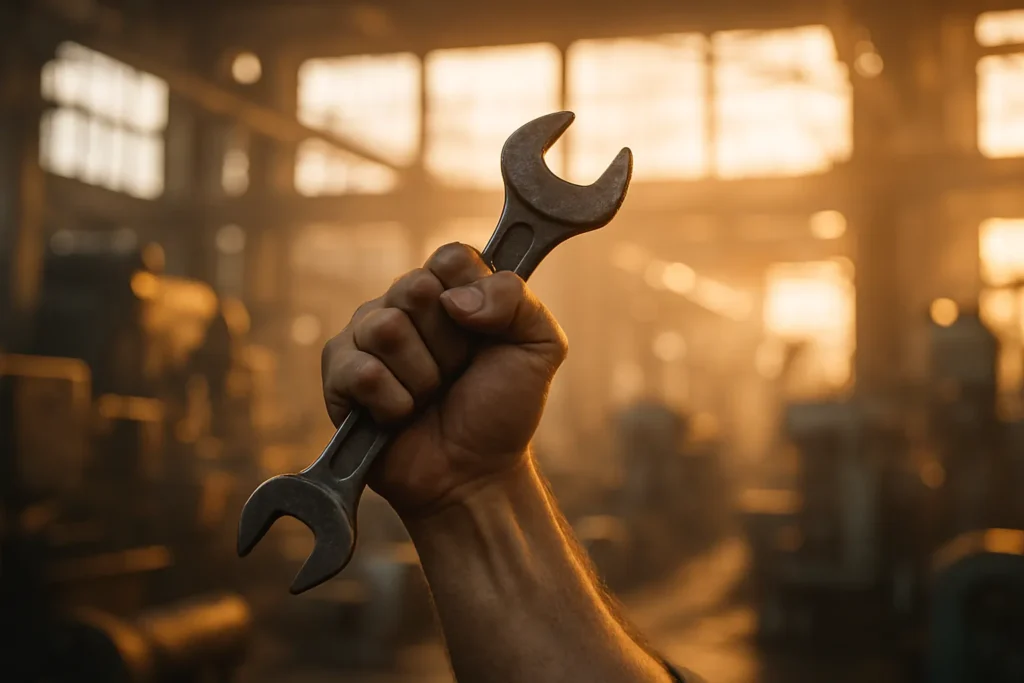Seeds of Change: Labor’s Bold Gamble in the Deep South
Steam rises off the asphalt in Huntsville, Alabama—a city pulsing with technical innovation, economic ambition, and, these days, rising worker discontent. The United Auto Workers’ (UAW) most recent push to unionize International Motors’ powertrain plant marks more than just a routine organizing effort. It’s a test of resolve for Southern labor—where union strength has long been stifled by tradition, anti-labor politics, and corporate resistance.
The battleground is set: 220 full- and part-time manufacturing workers, many of whom work shoulder-to-shoulder assembling the engines and drive trains where tomorrow’s transport will begin. The UAW, battered but unbowed after defeats at Mercedes-Benz and Hyundai, comes armed with a $40 million war chest and one electrifying goal—organize 40,000 Southern autoworkers by 2026.
Why here, and why now? Huntsville’s meteoric rise in the auto sector mirrors a broader Southern transformation, with blue-collar workers fueling surging profits for multinational automakers. Yet wages and working conditions often lag behind their unionized counterparts up north. According to the Economic Policy Institute, unionized auto jobs pay as much as 12% more than their non-union equivalents, with stronger health and safety standards to match. For many at International Motors, this vote could be a once-in-a-generation leap toward the American promise of fair reward for hard work.
Of course, the stakes are far from academic. Leadership at International Motors isn’t just resisting—they’re mounting a slick, well-financed campaign to persuade workers that “team culture” and direct communication will evaporate under unionization. Some employees received company talking points even during the July 4 holiday, highlighting just how high the temperature has become on the factory floor.
Tactics, Temptation, and the Southern Playbook
Peeling back the glossy rhetoric from plant managers reveals a familiar Southern playbook—direct appeals to worker loyalty, warnings of stalled innovation, and pointed reminders of recent economic success. The company touts a $200 million plant investment, a doubling of their full-time workforce over five years, and grand promises for “many more associates” to join the fold. Yet the UAW and its grassroots allies, like the emergent HPP Workers United for Change, counter with a sharp message: no amount of glossy investment can shield workers from management’s unchecked power if they remain divided.
What’s striking about International Motors’ resistance isn’t just its intensity, but its timing. The plant employs less than a tenth of the workers at Alabama’s mammoth Mercedes-Benz facility, where state officials—Governor Kay Ivey chief among them—openly disparaged union efforts. This time, company management is moving fast, requesting a secret ballot election rather than a card check process, keenly aware of the momentum building in a South growing weary of second-class economic citizenship.
The Southern auto industry owes a debt to collective labor—even if its CEOs are reluctant to admit it. In the decades following World War II, Detroit’s unions raised standards for blue-collar America. Today, non-union giants in the Southeast reap the benefits of that historic bargaining, even as they block their own workers from achieving similar voice and security. According to University of Alabama labor historian Dr. Steven Parks, “Union victories in the South could reset the wage and dignity baseline across the entire auto industry. That recalibration is exactly what employers—and local politicians—fear.”
“For the first time in decades, there is palpable momentum in the South. Workers are realizing that they are not merely disposable cogs—they are the heart of a thriving industry, and they deserve a genuine seat at the table.” – Labor historian Dr. Steven Parks
Is it any wonder then, that International Motors’ response comes with a blend of fervor and anxiety? Beyond Huntsville’s city limits, the eyes of the American labor movement are fixed on this plant, searching for signs that the New South’s workers really can bend the arc of workplace justice in their own direction.
The Road Ahead: Why This Battle Resonates Beyond Alabama
What’s at stake isn’t simply a single plant’s future, but the prospects for collective action in an era of historic economic inequality. Every major win or defeat shapes the narrative: Are unions an anachronism, or the essential bulwark against runaway corporate power? For the UAW, fresh from hard-fought victories at GM, Ford, and Stellantis in 2023—where contract gains included record raises and an end to wage tiers—this campaign is about expanding that justice to all U.S. autoworkers.
International Motors paints a different vision, anchored in appeals to “flexibility and innovation.” But experts warn that these buzzwords can mask a less savory reality. According to a recent Pew Research study, only 34% of non-union Southern autoworkers feel confident speaking up about workplace problems without fear of retaliation; among unionized workers, that figure jumps to nearly 70%. Which model truly fosters innovation—the one where workers have a voice, or the one where dissent risks a pink slip?
A closer look reveals a subtler threat to the plant’s “team-based culture”—the danger of quashing dissent in the name of unity. Healthy teams welcome debate, share risks and rewards, and set standards together; they don’t demand silence in exchange for job security. The promise of union representation, in its best form, isn’t antagonism—it’s democratic participation on the factory floor.
History suggests the needle can move quickly. Just two decades ago, the public sector in Alabama was nearly void of union influence. Today, educators and municipal workers have secured impressive victories through patient organizing—demanding not just better conditions for themselves, but tangible gains for their communities. Why should autoworkers accept less?
If the UAW succeeds in Huntsville, expect ripple effects far beyond one factory or one town. Shifts in worker empowerment can bring better pay, safer workplaces, and a renewed sense of civic purpose—outcomes that don’t just benefit labor, but lift entire towns and regions. Yet the outcome here remains uncertain. As the plant braces for a vote that could redefine Southern labor, only one thing is clear: the fight for dignity at work never goes out of style.

